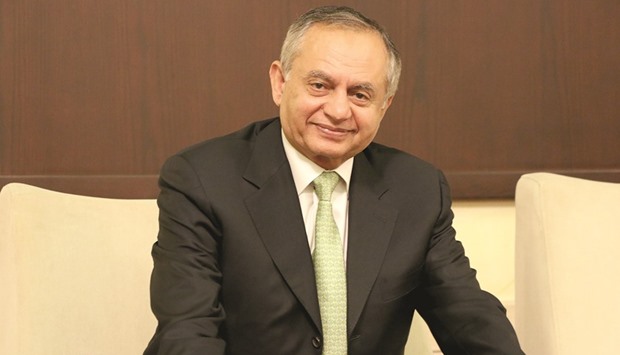
FAISALABAD: Advisor to Prime Minister on Commerce, Textile, Industry & Production and Investment Abdul Razak Dawood on Monday said Pakistan had remained a net loser in the FTAs with Indonesia, Malaysia, Turkey and even China.
Addressing the Faisalabad Chamber of Commerce and Industry, he lamented that during the last decade, many industrial units had been closed down due to which Pakistan’s export dwindled from $25-20 billion.
Moreover, he also acknowledged that signing Free Trade Agreements (FTAs) with multiple countries has proved counterproductive for Pakistan’s industrial sector and the government is currently renegotiating China-Pakistan agreement.
Mr Dawood said that Indonesia currently provides duty-free access to 20 items including denim and urged exporters to take advantage of this opportunity.
Regarding the FTA with Malaysia, he said that Federal Secretary Commerce Younus Dagha would visit Kuala Lumpur to renegotiate the agreement. Malaysia exports $1bn worth of goods to the country, whereas Pakistan only exports $150 million
He said industrialization through import substitution coupled with export growth through diversification was imperative to put the country on road to progress and prosperity.
Addressing the Faisalabad Chamber of Commerce and Industry, he lamented that during the last decade, many industrial units had been closed down due to which Pakistan’s export dwindled from $25-20 billion.
He said, “Our exports remained restricted to textile, however, we are planning to give a comprehensive industrialisation policy, wherein, the focus will be on engineering, chemical, IT and agriculture sectors instead of the textile sector alone.” He said that Pakistan had developed a culture to import everything irrespective of its manufacturing within the country.
“We must shun this trend and encourage ‘Made in Pakistan’ to give a supporting hand to the industrial sector,” he said.
The government is working to fine tune this policy in the light of proposals and recommendations made by the private sector, he said asking the business community to submit their recommendations so that government could take appropriate measures to promote ease of doing business and cut down the cost of doing business.
“We will give a framework for the industrial policy to ascertain strategically important industries so that the government can support them,” he remarked adding that some experts approached him that the development of industrial sector should be left on market dynamics without government interference.
“However, I think, it is not the right time as we have to boost our industry which is passing through tough internal competition and squeezing the market,” he added.
Suggesting measures to rationalise the tariff structure, he said that contrary to its purpose of discouraging imports, the structure is being manipulated to encourage imports. He informed that the government is currently revisiting the entire tariff structure which would be included in the supplementary budget to be announced next year.
Pakistan’s industrial sector is crippled due to poor utility deliverance on part of the government. Mr Dawood said that the gas problem affecting the sector has been resolved whereas the notification for the provision of electricity at 7.5 cents per unit to the zero-rated export sectors was still awaited.
He added that in the next meeting of cabinet’s energy committee, he would present the recommendations of the private sector to the members as it would help bring down the cost of doing business in the country.
“We have to get International Monetary Fund facility due to our weak economic conditions but we hope the rapid industrialisation within the next one to two years will stabilise national economy,” he explained.
He cited the example of Japan, Korea, Malaysia, Vietnam and Cambodia and said that they had supported their industrial sector to achieve self-sufficiency.







Respected Dawood sb should not utter such remarks before a policy has been formalized and implemented by the govt. What was the benefit of these remarks? Pakistan has been reaching out to these countries for financial support and PM’s advisor is lamenting FTAs signed with exactly these countries!!!
I assume PTI is in the government to propose solutions , not to reinstate the industry issues. Yet even PM and his advisers agenda is to discuss country problems at local and international reforms . 06 month have lapped yet no economic reforms .
The fact remain that the development of industrial sector /exports sectors should be left on market dynamics without government interference, for which only private sector players/stakeholders are the real decision makers. The Govt need to provide utilities on economical cost and without interruption/ break providing conditions of ease of doing business, free from bureaucratic hurdles/redtapism. If Pakistan could not make proper use of FTAs, there is no sense to blame friendly countries. Likewise, we will keep loosing friends, those whom we assume business partners/our well wishers.
Comments are closed.